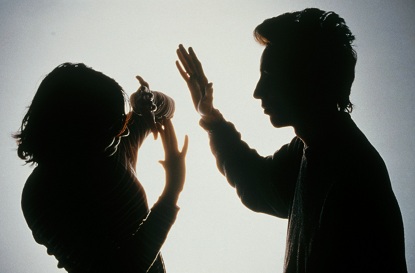The United States Congress, in 1994, recognized that there are immigrants who are victims of abusers and perpetrators of domestic violence crimes. They also acknowledged that there are victims of human trafficking, and sexual assault. These abusers very often threaten their victims with deportation. To stop these abusers from using immigration to promote their abuse or criminal activity, Congress created an immigration law for victims of this type of abuse. That law is called “The Violence Against Women Act” (VAWA). VAWA Self-Application: A woman or child whose abusive husbands or parents are U.S. citizens or lawful permanent residents can make an “application for oneself” under VAWA law. Elderly victims abused by their U.S. citizen children over the age of 21 can also make this request. This resource allows survivors of domestic violence to file documents to obtain legal immigration status without relying on an abusive husband, parent, or child. This way abusers cannot use control over immigration status as a tool to continue abuse. If you are divorced, you may still be able to apply under VAWA law, if you have been divorced less than 2 years. Consult with an immigration attorney immediately! Removing the Residence Condition: Some battered immigrant women are married to husbands who filed immigration documents for them and have conditional residency but refuse to complete the immigration process (after two years they must file a petition together with the Department of Homeland Security (DHS). These victims of domestic violence may apply for full lawful permanent residence without the knowledge or cooperation of their abusive spouses. This is done with a waiver where DHS allows the victim of domestic violence to apply to remove the condition without their spouse. The U-Visa for Victims of Crime The U visa offers access to legal status to victims of domestic violence, rape, sexual assault, and other criminal activities if the victim has or is willing to cooperate with the investigation or prosecution of criminal activities. The U-visa was created to eliminate the use of threats of deportation to avoid criminal charges and cooperation from victims. This visa is especially useful for victims of sexual assault and for victims of domestic violence perpetrated by a boyfriend, girlfriend, same-sex partner, or undocumented spouse, as well as other victims of criminal activity. The Victim of Human Trafficking: T-Visa A person is a victim of human trafficking if their presence in the U.S. is due to force, fraud, or threats and they are required to provide labor, services, or sex work. As a victim of human trafficking, they could be eligible for the T visa. The T Visa was created to help victims and so that they are not afraid to come forward to the authorities and help in cases against human traffickers. VAWA and Cancellation of Removal/Suspension of Deportation You may be able to apply for “cancellation of removal or deportation” if you are in deportation proceedings in immigration court. Consult with an immigration attorney immediately! VAWA Confidentiality Abusers frequently try to inform DHS (Immigration) of their victims’ illegal status in order to prevent victims from leaving an abusive relationship or in retaliation for leaving. The confidentiality of VAWA guarantees that the Department of Homeland Security, Department of State, Department of Justice, and Department of Labor employees CANNOT: Use the information of an abuser or abuser family member to decide if the victim is eligible for any immigration benefits. Use or share any information contained in or about the existence of any petition under VAWA, T visa application, or a U visa immigration case. Court officers or judges of the criminal or family courts, as well as police officers may also not use or disclose information from cases. Take legal action against an immigrant who is a victim of domestic violence in any of the following places:
- A shelter for victims (Shelter).
- Crisis Center for Rape Victims.
- Family justice centers.
- Supervised visitation center.
- Victim programs or service providers.
- Community organizations.
- Court buildings in relation to any protective order case, child custody, civil or criminal cases affecting or related to domestic violence. sexual assault or human trafficking.
Many women (and men too) who are eligible do not know about these options and that they can get help. That is why it is very important to consult with an immigration attorney experienced in these types of cases before submitting any petition. This is a basic explanation about VAWA and each case requires individual consultation. Call my office for an appointment. The first consultation is free. Abraham B. Cardenas, Esquire Cardenas Law Firm, LLC 8150 SW 8 St, Suite 122 Miami, Florida 33144 (786) 347-1605

